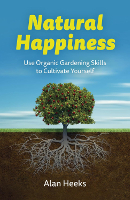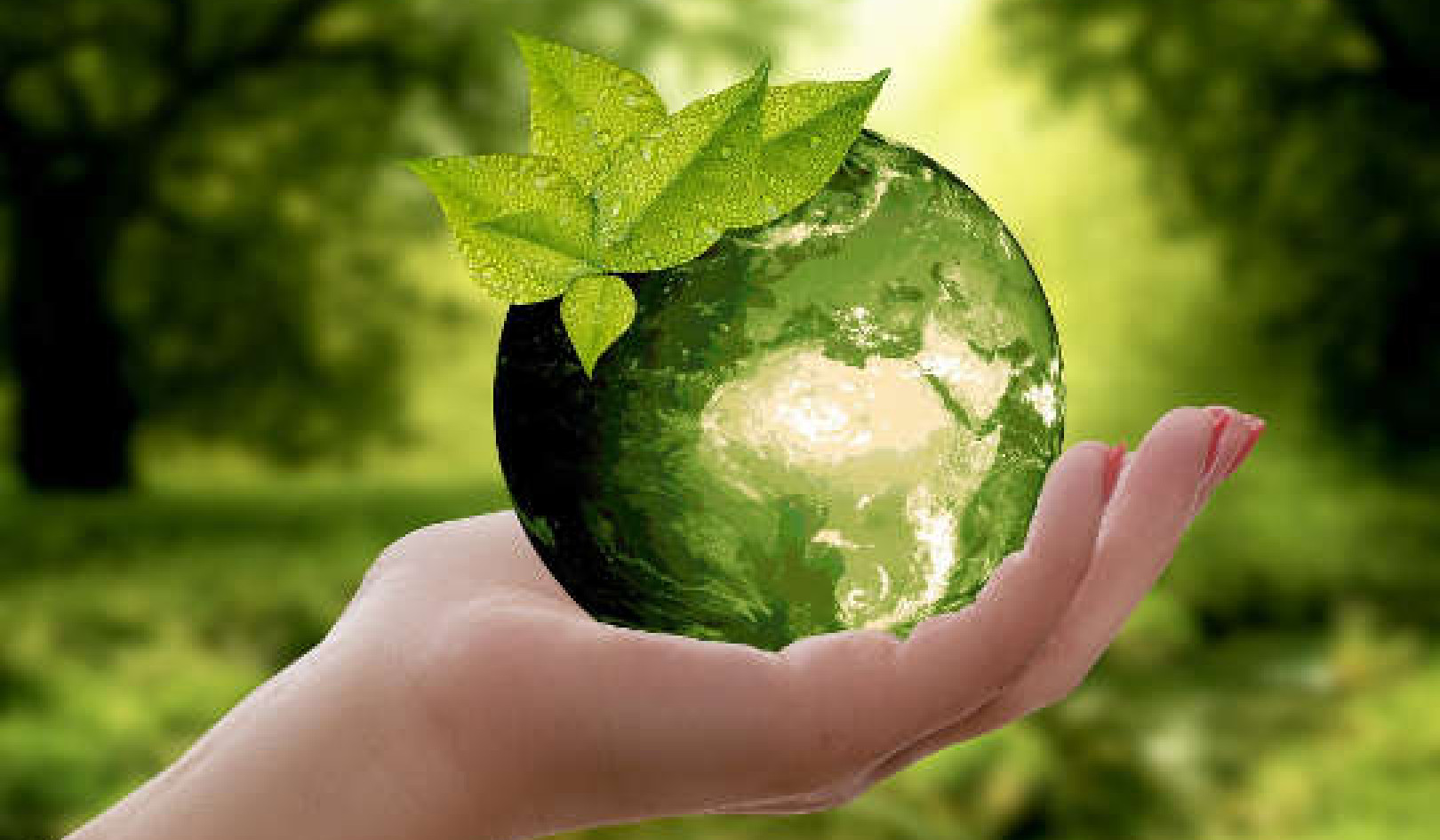
Image by StockSnap
We all need stronger ways to stay cheerful and steady in these turbulent times. I’ve found help from a surprising source: organic gardens and farms. There are powerful parallels between sustainability for the land and for our own human nature.
I discovered this when I got burned out in my successful business career and followed a wild impulse to start a 130-acre organic farm, from scratch, with zero farming experience.
You Are A Living Organism
People sometimes compare themselves to a complex mechanism, like a car or computer, but that’s too simplistic. We are living organisms, like a garden. I’ve found that cultivated natural ecosystems, such as a garden or organic farm, are the best guide to growing our own happiness: showing us how to steer an organism to a positive outcome using natural growth methods.
I call this approach the Gardener’s Way: it’s easy to use, whether you’re a gardener or not. The parallels are simple, and all explained in my new book, Natural Happiness.
The Gardener’s Way
In The Gardener’s Way, see yourself as both the garden and the gardener. You are a natural organism, like the garden: and you’re also the gardener, who brings love and brains to cultivate the earth.
It’s clear that you can’t understand a garden from a purely physical point of view. Feelings, intuition, inspiration are involved. You can bring these subtler qualities into your work, your home life, and into groups and community projects.
There are no instant fixes, but this is a grounded, practical approach which you can easily learn. It will help you to understand how human nature works and how to cultivate it, like a gardener, using natural principles. For example:
-
Deepening your roots and resilience
-
Finding new sources of natural energy
-
Composting difficulties, to provide fresh insights and momentum.
-
Strengthening your co-creative skills, so you handle problems more positively.
-
Growing support and resilience in groups such as your local community
-
Evolving positive approaches to big issues, especially climate change
Compost Your Emotions, Anxious Thoughts, Stress
Here’s a practical example: Imagine you can harness a major source of energy that’s already within you: it’s free, abundant, and just needs a bit of effort to process it. What’s more, you’ll be creating benefits out of problems that drain energy and pollute your inner ecosystem. This is what composting offers you.
In a natural system, there is no waste. Composting in gardens and farms starts with rubbish, animal dung, rotting vegetable matter. All this ‘waste’, useless in these forms, ends up as humus, highly fertile, able to renew the earth’s vitality.
Now imagine the waste that’s stuck in your ecosystem: emotions, mental worry, maybe a sense of pointlessness. And feel how great it would be to clear out this waste and turn it into fresh energy and insights.
Consider how much of your energy is tied up in negative emotions like anger, or in anxious thoughts and mental stress. Composting can help you turn all this into positive energy and insights, but it’s a new skill which takes patience.
Composting waste in the garden raises the vitality and resilience of your soil, and avoids the pollution and depletion caused by artificial fertiliser. Physical composting takes several months but the human equivalent can happen in minutes, days or weeks.
Plant and animal waste usually look bad, and smell worse. Yet they are a valuable resource if we can change their form, and the same is true of human energy waste.
Three Levels of the Human-Equivalent of Composting
Most of us carry a lot of negative energy, stuck in our ecosystem, which saps our vitality. The first two steps are noticing it and making moves to compost some of this into a source of positive energy.
There are three levels of composting you can use:
-
In the moment:
Try using the Quickie process below as soon as you feel upset. If someone just said something to cause this, slow the situation down: ask them to repeat it, or say ‘Give me a minute to digest that.’ -
Review and reflect:
A good way to maintain your resilience is by a regular review of anything that’s bugging you and sapping your energy. For this, the Seven Steps process in the book is worth using. To do this thoroughly, you may need to intensify difficult feelings, so find a space and time where you can complete the composting. -
Professional help:
If you’re facing a major upset in your personal life or your work, it may be wise to get support from a counsellor or therapist. Part of their training is in composting painful emotions, though they may not use this language.
The Quickie process below is worth memorising, so you can use it in real time when something upsets you.
Self-help Quickie: Short Composting Process
Use this while you’re in an upsetting situation, or when you don’t have much time to deal with a difficult feeling.
Start by focusing your attention in your body. Feel the weight of your feet on the floor. Look for any physical signs of tension, take note of them (such as shallow breathing, sweaty palms).
Now start breathing slowly and deeply: push on the outbreath, so you empty your lungs. Imagine you are moving your breath and your attention around your body in a circular flow, starting from where you feel most distress. See yourself breathing the difficult feelings up your spine to your head, then down the front of your body to the perineum (n the pelvic area).
As you continue this circular breathing, imagine you are converting your distress into clean, positive energy.
With practice, you can do this for a minute or two while you’re in a challenging situation. Or use it soon afterwards.
Copyright 2024. All Rights Reserved.
Book by this Author:
BOOK: Natural Happiness
Natural Happiness: Use Organic Gardening Skills to Cultivate Yourself
by Alan Heeks.
 Natural Happiness can help you dig deep and stay cheerful in these stormy times. A gardener applies skills like observation, patience and creativity - and you can adapt them to deal with daily stresses and big issues such as climate change. Alan shows how you can use gardening methods such as composting, mulching, and crop rotation to cultivate human nature, too.
Natural Happiness can help you dig deep and stay cheerful in these stormy times. A gardener applies skills like observation, patience and creativity - and you can adapt them to deal with daily stresses and big issues such as climate change. Alan shows how you can use gardening methods such as composting, mulching, and crop rotation to cultivate human nature, too.
Natural Happiness explores Alan’s Seven Seeds of Natural Happiness, which grows from 30 years’ experience of helping people learn from nature, and from creating gardens and an organic farm.
For more info and/or to order this book, click here. Also available as a Kindle edition.
About the Author
 Alan Heeks is a group leader, author and pioneer who has over 30 years' experience helping people to grow their wellbeing through contact with Nature. He left a successful business career to set up a 130-acre organic farm and education centre, and the Seeding our Future project, which helps individuals, local communities and NHS doctors to build resilience in the face of climate change and other stresses.
Alan Heeks is a group leader, author and pioneer who has over 30 years' experience helping people to grow their wellbeing through contact with Nature. He left a successful business career to set up a 130-acre organic farm and education centre, and the Seeding our Future project, which helps individuals, local communities and NHS doctors to build resilience in the face of climate change and other stresses.
Visit his website at AlanHeeks.com/






















